In our previous article, we explored the challenges that artificial intelligence introduces from both a technological and ethical standpoint. In this third and final article of the series, we will delve into some practical use cases. With the introduction of Generative AI, the possibilities to leverage AI are basically limitless and the only limitation is our imagination. Below is a very quick overview of what chatGPT can do provided by chatGPT itself (see also OpenAI API Examples)
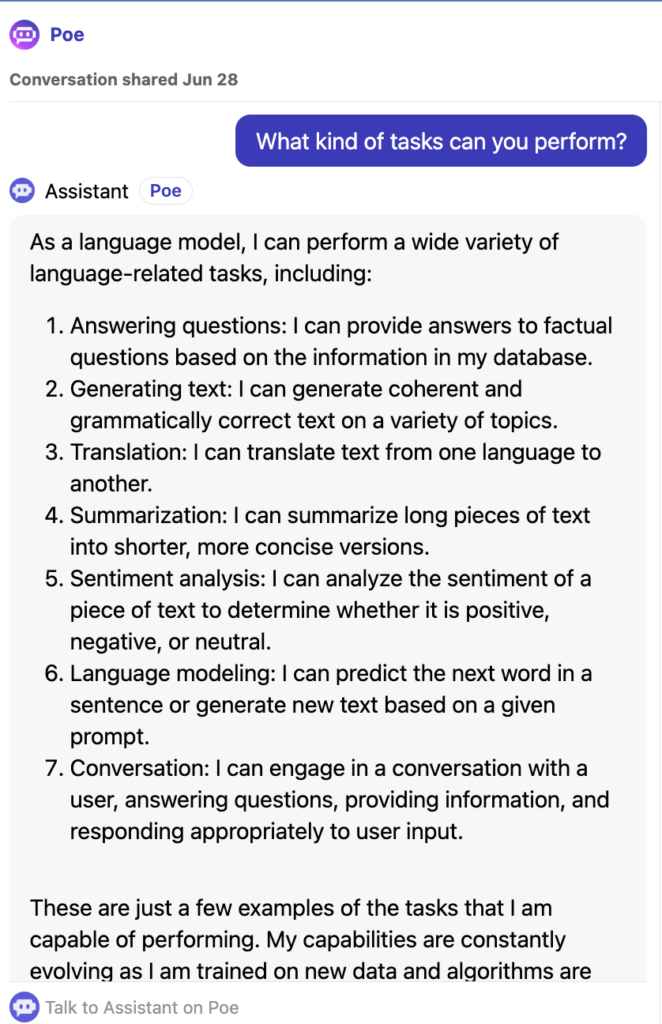
But generative AI can go way beyond the above and help in many different business fields. Below are just a few examples of the application of AI in the ecommerce industry.
Product Information Management (PIM)
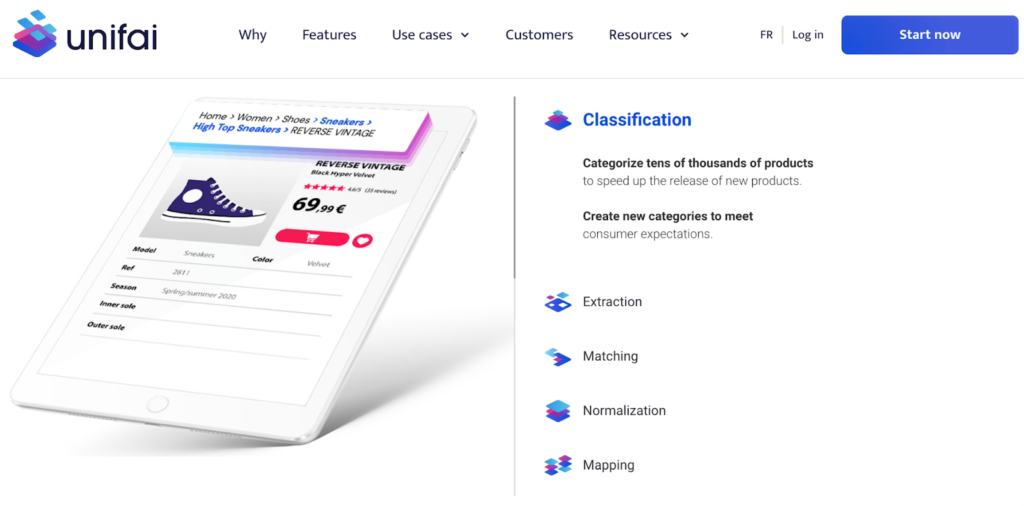
In the field of Product Information Management (PIM), AI automation is extremely useful to save time and effort compared to manual data entry.
- Content Generation: AI is especially useful for generating content based on provided keywords, predefined templates and criteria. For example, it can be requested to generate a product description in a particular tone targeting specific customers. It can also leverage SEO best practices to optimise content for search engines and improve organic discoverability.
- Product Data Extraction & Enrichment: AI and especially Natural language processing (NLP) can automate the extraction of product information such as product names, descriptions, colour, sizes, etc… from various unstructured sources such as websites or PDF documents in order to improve search filters and provide more detailed product information to customers.
- Product Categorization and Classification: AI can classify products into appropriate categories and subcategories based on selected attributes (e.g. product name, description, images…). This helps in organising and structuring product data, making it easier to navigate and search for specific items.
- Content Translation: LLMs are particularly suited to grasp complex language structures and nuances, making it the perfect tool not only to automate translation but also to improve the content quality (e.g. to rephrase a given content)
- Data Cleansing and Standardization: AI algorithms can help clean and standardise product data by identifying and correcting inconsistencies, errors, and formatting issues. For example, AI can detect and merge duplicate product entries, normalise units of measurement, and validate data against predefined standards or rules. This ensures that product data is accurate, consistent, and ready for analysis or presentation.
- Generate cross references: AI can analyse product data to identify similar or related items based on various attributes like product type, features, or customer preferences. This allows for the creation of product recommendation systems that suggest complementary or alternative products to customers thus increasing cross-selling and upselling opportunities.
AI algorithms can also analyse historical sales data, market trends, and other factors to manage dynamic data such as price and stocks:
- Inventory Management: AI can predict future demand for products accurately, therefore helping ecommerce businesses optimise their inventory management, ensuring that popular items are adequately stocked while minimising overstocking or shortages. Accurate demand forecasting can improve profitability by reducing storage costs and minimising lost sales due to stockouts.
- Pricing and Sales Analysis: AI can generate insights and recommendations for product pricing strategies. By identifying optimal price points, businesses can maximise revenue, maintain competitiveness, and adjust pricing dynamically based on demand and market conditions.
- Performance Analysis: Thanks to sentiment analysis techniques, AI can analyse product data, customer reviews, and feedback and help the business make data-driven decisions for product enhancements.
Content Management (CMS)

With the introduction of generative AI, it is now easier than ever to create content, whether it’s text or assets, and enables marketers to increase productivity and relevance. Just like with Product Information management, there are multiple use cases:
- Content Generation: Generative AI can create original content in various domains, such as articles, product descriptions, social media posts, etc., saving time and effort in content creation.
- Content Enhancement: Generative AI can help improve existing content by providing enhancement suggestions (see the example on Adobe AEM). For example, it can analyse a text and offer recommendations to improve clarity, consistency, tone, and overall content quality.
- Translation: Generative AI can assist in translating content from one language to another, allowing organisations to reach a wider audience and effectively manage multilingual content.
- Content Summarization: Generative AI can be trained to summarise lengthy texts by extracting the most relevant and important information, facilitating content management and curation.
- Personalised Content: Generative AI can analyse user preferences, behaviour, and historical data to generate personalised content recommendations. By utilising machine learning algorithms, it can suggest relevant articles, products, or media to individual users, thereby enhancing their overall content experience.
Ecommerce
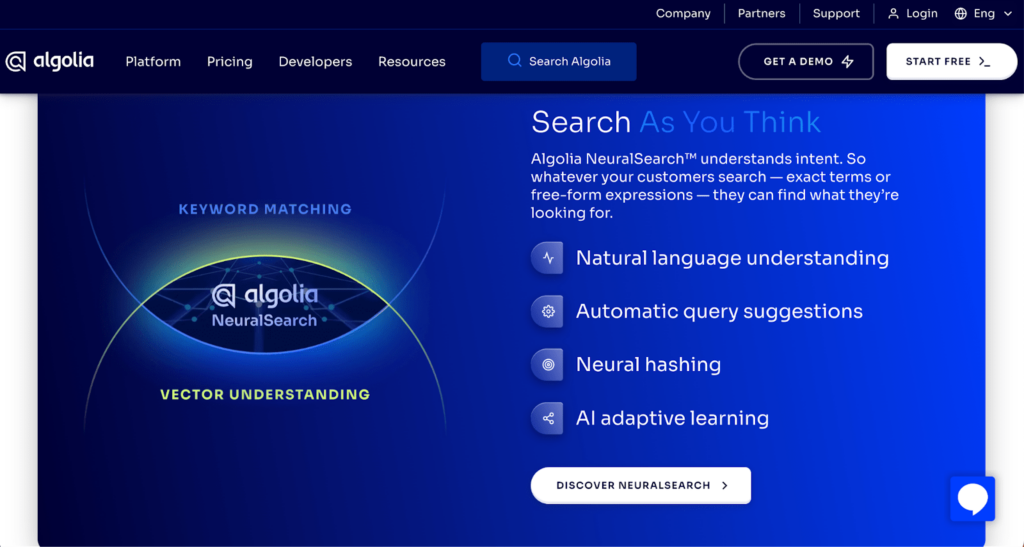
AI can help in e-commerce to provide help on:
- Search and Product Discovery: AI-powered search engines can understand user intent and provide more relevant search results. Natural language processing (NLP) techniques enable improved product discovery by understanding and interpreting customer queries (e.g. “Little red dress”), even if they are imprecise or use synonyms. Advanced recommendation systems can showcase related products, upsell or cross-sell items, and help customers find what they’re looking for more efficiently
- Customer Service and Support: AI-powered chatbots and virtual assistants can provide automated customer service and support. These intelligent systems can handle routine inquiries, provide product information, assist with order tracking, and even process returns or exchanges. By automating customer service, businesses can improve response times, reduce costs, and provide 24/7 support.
- Personalised Shopping Experience: AI provides personalised product recommendations (e.g. merchandising, e-merchandising) by understanding individual preferences and interests thanks to customer data, including browsing history, purchase behaviour, and demographics. This aspect of ecommerce yields better customer engagement.
- Fraud Detection and Prevention: AI can analyse large volumes of data to identify patterns and anomalies associated with fraudulent behaviour, thus preventing fraudulent activities, such as identity theft, stolen credit cards, or fake reviews. Stripe is one such company that leverage GPT-4 to combat fraud (see the blog article and video)
Customer Data (CRM)

Today, CRM tools face challenges related to data quality and time-consuming manual tasks. Some AI technologies have been incorporated into CRM systems to address these issues. Salesforce Einstein, Microsoft Dynamics 365 AI, and other CRMs are leveraging AI.
AI can help in CRM to provide help on:
Data Analysis
- Customer Insights: CRM systems powered by AI enable the analysis of a significant amount of customer and prospect data. Through this analysis, AI can identify trends and correlations between customer interactions and purchase history. This can help gain a thorough understanding of customer preferences and needs, leading to the development of better marketing and sales strategies for the future while improving the customer experience.
- Sales Predictions: In addition to gaining better customer insights, AI allows for obtaining information on predictions of future sales performance based on data. Consequently, informed decisions can be made regarding resource allocation, setting realistic revenue targets, and optimizing sales strategies to maximize profitability.
- Personalized customer recommendations: By understanding individual customer preferences, purchase history, and browsing behavior, businesses can provide tailored product suggestions, promotions, and content, CRM can offer personalized recommendations. This enhances the customer experience, increases engagement, and drives sales by offering relevant and compelling recommendations based on each customer’s unique interests and needs.
Sales performance and productivity
- Automation of Sales Routine Tasks: AI-powered CRM systems effectively automate repetitive and time-consuming tasks, resulting in valuable time savings for sales teams. Equipped with AI capabilities, chatbots proficiently handle customer inquiries, providing instant responses and even initiating basic sales processes. Additionally, some AI technology can comprehend voice streams originating from client or prospects meetings and seamlessly transcribes them from an unstructured format to a structured one within CRM systems. Notably, Voice Parser stands out as an AI solution integrated with Salesforce, specifically designed for voice stream transcription.
- Lead Scoring and qualification: AI algorithms in CRM systems assess lead quality and potential based on various criteria. By analyzing demographics, behavior, and engagement, businesses can assign lead scores and prioritize their efforts. This streamlines the lead qualification process, enabling sales teams to focus on the most promising prospects, improve conversion rates, and optimize resource allocation.
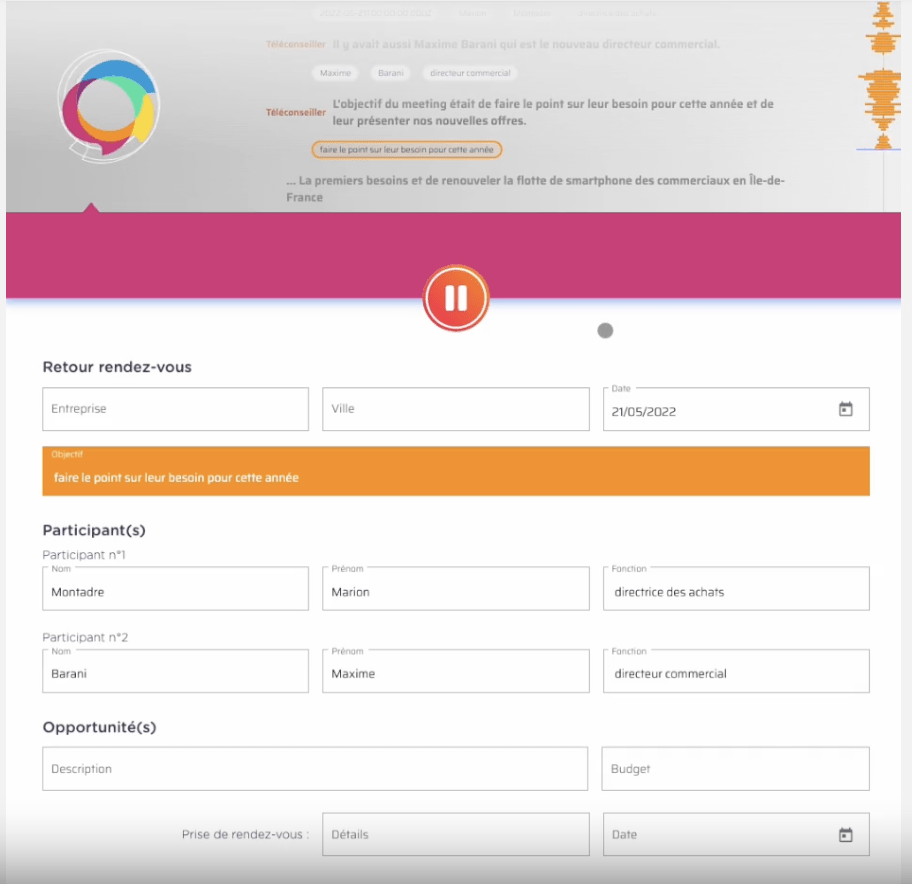
coding
With the introduction of GPT-3.0, openAI released Codex, the engine that powers GitHub’s Copilot, an AI pair programmer that is able to assist in the production of code, therefore helping the IT industry to be more productive and focus on bigger problems.
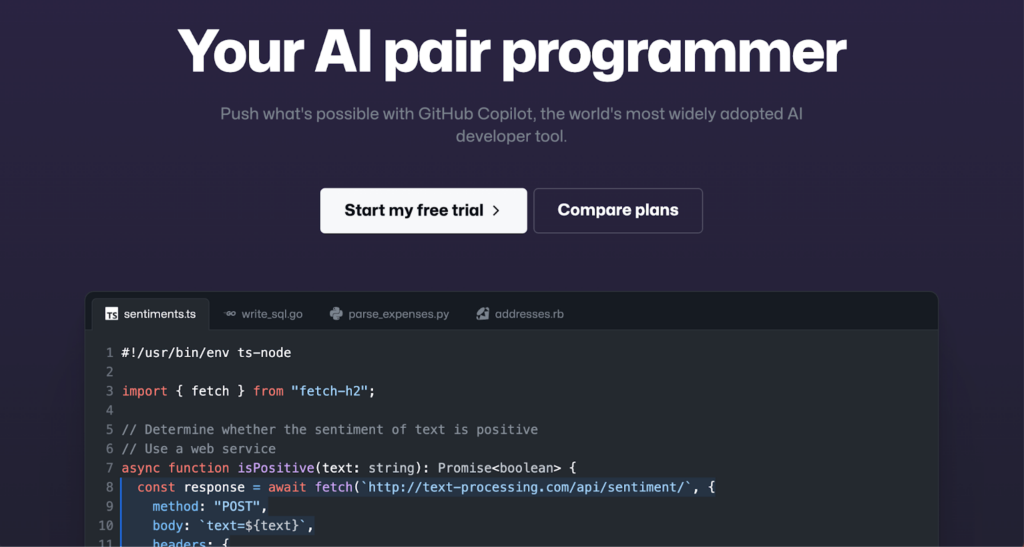
Today, more and more developers rely on chatGPT technology for
- Code Generation: AI-powered code generation tools can leverage machine learning techniques to analyse existing codebases, libraries, and programming patterns to provide suggestions and reduce manual coding efforts. This improves coding speed, reduces errors, and enhances developer productivity.
- Code reviews & optimisations: By analysing coding patterns, algorithmic complexity, and performance bottlenecks, AI tools can suggest code improvements and optimizations to enhance efficiency and maintainability. This helps developers write more efficient and maintainable code.
- Debugging: AI-powered tools can analyse code syntax, dependencies, and logic to identify potential issues, such as null pointer exceptions, memory leaks, or logical errors. This speeds up the debugging process, improves code quality, and reduces the time spent on manual bug hunting
- Code Documentation: AI models can assist in generating code documentation simply by reading the code. This can automate the process of maintaining up-to-date and comprehensive code documentation such as comments, function descriptions, and API documentation.
- Test Generation: AI algorithms can analyse code logic, execution paths, and inputs to generate test cases that cover different scenarios, helping improve code quality and reducing the manual effort required for testing
- Code Translation: AI can assist in translating code between different programming languages or localising code for international markets, enabling cross-language development and global software localization
Wrap up
ChatGPT is more than just a passing trend. It’s a technology that has made a significant impact on our daily lives, from its ability to generate text that feels human-like to changing the way we gather and use information in fields like Retail and E-commerce, healthcare, education, customer service and more.
As we’ve seen in this article, AI has a wide range of applications depending on business needs. It has proven to have a real impact on improving efficiency and driving business growth. Clever Age, a digital expert in areas like e-commerce, CRM, and PIM, can provide valuable guidance on implementing AI best practices for your business.
Given the substantial impact AI has already had on businesses, it’s worth considering its potential for future impacts in the 5 coming years. How do you see AI shaping the future of business, going beyond its current applications?



